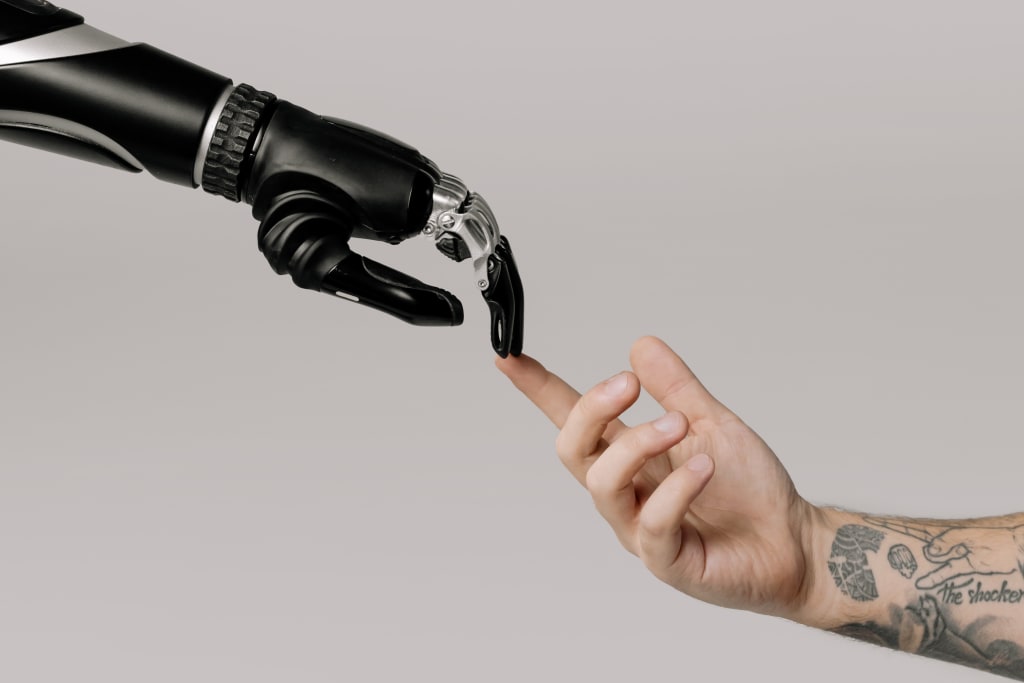Exploring the Ethical Implications and Potential Applications of Artificial Intelligence: Shaping the Future of AI
Balancing Innovation and Responsibility for a Transformative AI Landscape

=====> Click Here To For More Information <=====
2. 2nd Book ( Weapons of Math Destruction )
Introduction
Artificial Intelligence (AI) has become an integral part of our lives, permeating various industries and transforming the way we live and work. As AI continues to advance rapidly, it brings with it a host of ethical implications that demand careful consideration. This article delves into the benefits and risks of AI, explores the ethical challenges it presents, and provides insights into the potential applications and future trajectory of this groundbreaking technology.
The Benefits of AI
Artificial Intelligence offers numerous benefits that have the potential to revolutionize industries and improve our lives. AI-powered systems can process vast amounts of data quickly and accurately, enabling efficient decision-making and problem-solving. In healthcare, AI can assist in diagnosing diseases, developing personalized treatment plans, and improving patient outcomes. In transportation, AI is driving advancements in autonomous vehicles, enhancing road safety and efficiency. Additionally, AI is enhancing customer experiences through chatbots, recommendation systems, and personalized marketing.
Ethical Considerations
While the benefits of AI are undeniable, its implementation raises several ethical concerns. One primary concern is the impact of AI on employment. As AI and automation replace certain job roles, there is a need for proactive measures to reskill and upskill workers to ensure a just transition. Additionally, AI algorithms must be developed and deployed responsibly to avoid perpetuating biases and discrimination, especially in areas such as hiring and criminal justice.
=====> Click Here To For More Information <=====
2. 2nd Book ( Weapons of Math Destruction )
Privacy and data security are another critical ethical consideration. AI systems rely on vast amounts of personal data, and ensuring the protection of this data is paramount. Striking a balance between data utilization for AI development and safeguarding individual privacy is a challenge that must be addressed through robust regulations and transparency in data usage.
Accountability and transparency in AI decision-making processes are also vital ethical concerns. As AI systems become more autonomous, it is essential to understand and explain the reasoning behind their decisions. This "black box" problem poses challenges in fields such as healthcare and finance, where the interpretability and explainability of AI algorithms are crucial.
Potential Applications of AI
Looking ahead, the potential applications of AI are vast and hold great promise. In healthcare, AI can aid in early disease detection, drug discovery, and personalized medicine. By analyzing large datasets and identifying patterns, AI can provide valuable insights that enable more accurate diagnoses and optimized treatment plans.
In the realm of environmental sustainability, AI can contribute significantly. From optimizing energy consumption in smart cities to monitoring and managing natural resources, AI-powered systems can help reduce waste, increase efficiency, and mitigate the impacts of climate change.
Education is another domain where AI can make a substantial difference. AI-powered personalized learning platforms can adapt to individual student needs, providing tailored educational experiences. Intelligent tutoring systems can offer real-time feedback and assistance, enhancing learning outcomes.
=====> Click Here To For More Information <=====
2. 2nd Book ( Weapons of Math Destruction )
The Future of AI
As AI continues to evolve, it is crucial to shape its trajectory consciously. Collaboration between policymakers, researchers, and industry experts is necessary to develop robust frameworks that govern the ethical deployment of AI. Establishing clear guidelines, standards, and regulations will ensure that AI technologies are used responsibly and for the benefit of humanity.
Investment in education and reskilling programs is vital to prepare individuals for the changing job landscape. By equipping individuals with the skills needed to work alongside AI systems, we can create a future where humans and machines collaborate synergistically, leveraging each other's strengths.
Conclusion
The future of artificial intelligence is brimming with possibilities. The ethical implications of AI must be at the forefront of discussions surrounding its development and implementation. By addressing concerns related to employment, privacy, bias, and accountability, we can harness the full potential of AI while safeguarding individual rights and societal well-being. With responsible practices and a focus on collaboration, we can pave the way for an AI-powered future
=====> Click Here To For More Information <=====
2. 2nd Book ( Weapons of Math Destruction )
Thank you for reading this article. If you like this article of mine, then follow me. so that i can give you more good information.
About the Creator
Kailash Sarthi
Experienced content writer, and blogger, dedicated to delivering unique and engaging content. Follow me for updates on my latest projects and insightful posts on various topics. Let's create something great together.






Comments
There are no comments for this story
Be the first to respond and start the conversation.